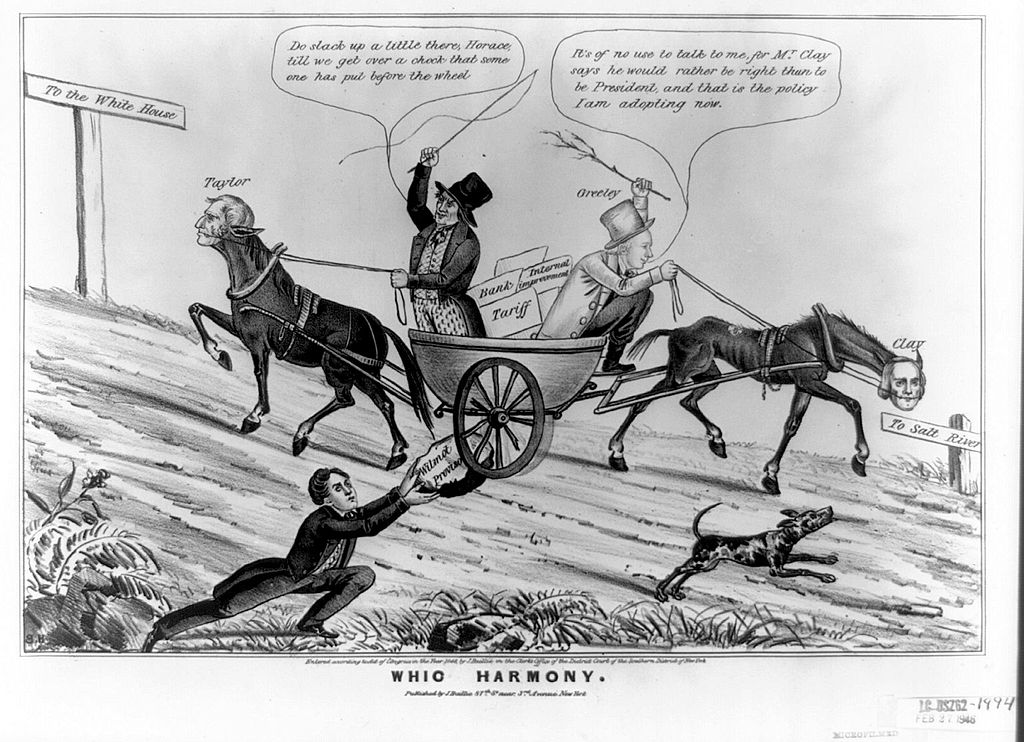Whig harmony
Autor/Urheber:
H. Bucholzer
Größe:
1536 x 1113 Pixel (263126 Bytes)
Beschreibung:
Whig harmony. A severe split within the Whig ranks, between partisans of Henry Clay and those of Zachary Taylor, preceded the party's convention in June 1848. Here Horace Greeley, one of Clay's most influential northern supporters, tries to drive the party wagon downhill toward "Salt River" (a contemporary idiom for political doom). At the same time, a Brother Jonathan or Uncle Sam figure steers in the opposite direction, toward the White House. Greeley whips his horse, a scrawny nag with the head of Henry Clay, with a switch or small branch; the uphill-bound horse has Taylor's head, and its driver wields a carriage whip. The cart is laden with papers marked "Tariff," "Bank," and "Internal Improvements," traditional catchwords of Whig politics. Greeley: "It's of no use to talk to me, for Mr. Clay says he would rather be right than to be President, and that is the policy I am adopting now." Brother Jonathan: "Do slack up a little there, Horace, till we get over a chock that some one has put before the wheel." The "chock" that the cart has run into is a rock marked "Wilmot Proviso," placed in the road by Congressman David Wilmot. The question of the validity of the proviso, an 1846 proposal to prohibit slavery in territories acquired during the Mexican War, became an important issue in the 1848 campaign, and a stumbling block to candidates like Taylor who courted Southern support. The proviso was never passed by the Senate.
Kommentar zur Lizenz:
PD (published in U.S. prior to 1923)
Weitere Informationen zur Lizenz des Bildes finden Sie hier. Letzte Aktualisierung: Sun, 11 Sep 2022 21:32:55 GMT
Relevante Artikel
Wilmot Proviso
Der Wilmot Proviso, seltener auch die Wilmot-Klausel, war ein am 8. August 1846 von David Wilmot, einem Mitglied des Repräsentantenhauses, eingebrachter Zusatzantrag im US-Kongress. Er besagte, dass in den weiten Gebieten, die im Zuge des Mexikanisch-Amerikanischen Krieges an die Vereinigten Staaten gefallen waren, die Sklaverei nicht eingeführt werden durfte. Der Antrag wurde über die nächsten Jahre mehrmals eingebracht, jedoch niemals verabschiedet. Dies scheiterte im Wesentlichen aufgrund des Widerstands im Senat. Er wird als einer der Vorfälle gewertet, die zum Sezessionskrieg führten.
.. weiterlesen
